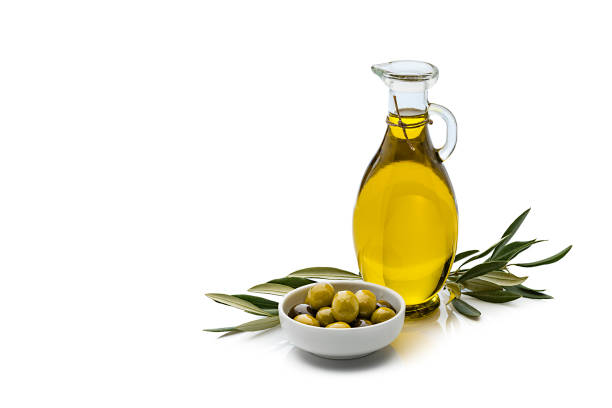Contents
Olives, often referred to as the “fruit of the gods,” have been an integral part of Mediterranean cuisine and culture for centuries. These small, oval-shaped fruits are not only delicious but also packed with numerous health benefits. From their rich nutritional profile to their potential side effects, olives have garnered attention worldwide. In this blog, we will delve into the 11 health benefits of olives, explore their potential side effects, and shed light on the wonders of this remarkable fruit.
Health Benefits of Olives:
Abundant in Antioxidants:
- Olives are a powerhouse of antioxidants, including vitamin E and polyphenols, which help combat oxidative stress, reduce inflammation, and protect against chronic diseases.
Heart Health:
- The monounsaturated fats present in olives promote cardiovascular health by reducing bad cholesterol levels and lowering the risk of heart disease and stroke.
Cancer Prevention:
- The antioxidants in olives, particularly oleuropein and hydroxytyrosol, exhibit anti-cancer properties and may help inhibit the growth of cancer cells.
Anti-inflammatory Effects:
- The compounds found in olives have been shown to possess anti-inflammatory properties, aiding in the prevention and management of conditions such as arthritis and inflammatory bowel disease.
Digestive Health:
- Olives are a great source of dietary fiber, promoting healthy digestion, preventing constipation, and supporting the growth of beneficial gut bacteria.
Bone Health:
- The high levels of calcium, magnesium, and other minerals found in olives contribute to bone strength and density, reducing the risk of osteoporosis.
Skin and Hair Health:
- The antioxidants in olives help protect the skin against oxidative damage, keeping it youthful and radiant. Additionally, olive oil derived from olives is often used as a natural moisturizer and hair conditioner.
Weight Management:
- Olives are low in calories and rich in healthy fats, which can promote satiety and aid in weight management when consumed as part of a balanced diet.
Blood Pressure Regulation:
- The beneficial fats and antioxidants in olives have been associated with blood pressure reduction, helping to maintain healthy levels.
Eye Health:
- Olives contain vitamin E, lutein, and zeaxanthin, which are essential for maintaining healthy eyesight and reducing the risk of age-related macular degeneration and cataracts.
Mental Well-being:
- The monounsaturated fats and antioxidants in olives have been linked to improved brain health, memory retention, and a reduced risk of cognitive decline.
Side Effects of Olives:
High Sodium Content:
- Olives, particularly the ones preserved in brine or saltwater, can be high in sodium, which may be problematic for individuals with high blood pressure or those following a low-sodium diet.
Allergies:
- Some people may be allergic to olives, experiencing symptoms such as itching, rash, or difficulty breathing. It is advisable to consult a healthcare professional if you suspect an olive allergy.
Conclusion:
Olives are not only a delightful addition to various dishes but also offer a multitude of health benefits. From their antioxidant properties and heart-healthy fats to their potential cancer-fighting abilities and digestive benefits, olives deserve recognition as a superfood. However, it’s crucial to consume them in moderation and be aware of potential side effects, especially if you have specific health conditions or allergies. So, embrace the goodness of olives and savor their flavors while reaping the rewards they offer for your well-being.
FAQs:
Q1. Can olives help with weight loss?
A1. Olives are low in calories and rich in healthy fats, making them a suitable addition to a weight loss diet. Their high fiber content also aids in promoting feelings of fullness and satiety, which can help control appetite and prevent overeating. However, it’s important to consume olives in moderation as they still contain calories, and excessive intake can hinder weight loss efforts.
Q2. Are olives suitable for individuals with high blood pressure?
A2. While olives are generally considered a healthy food, individuals with high blood pressure should be cautious due to their sodium content. Olives preserved in brine or saltwater tend to be higher in sodium, which can potentially elevate blood pressure levels. Opting for low-sodium or fresh olives and consuming them in moderation can be a more suitable choice for those with high blood pressure.
Q3. Can olives be beneficial for skin health?
A3. Yes, olives can be beneficial for skin health. The antioxidants present in olives help protect the skin from oxidative damage caused by free radicals. This can result in improved skin elasticity, reduced signs of aging, and a more radiant complexion. Additionally, olive oil derived from olives is often used as a natural moisturizer and can help nourish and hydrate the skin.
Q4. Are there any potential side effects of consuming olives?
A4. While olives are generally safe for consumption, there are a few potential side effects to be aware of. Some individuals may be allergic to olives and may experience symptoms such as itching, rash, or difficulty breathing. Moreover, olives preserved in brine or saltwater can be high in sodium, which may be problematic for individuals with high blood pressure or those following a low-sodium diet. It’s always advisable to consult a healthcare professional if you have any concerns or experience adverse reactions after consuming olives.
Q5. Can olives help improve digestive health?
A5. Yes, olives can contribute to digestive health. They are a good source of dietary fiber, which aids in maintaining regular bowel movements and preventing constipation. Additionally, the fiber in olives acts as a prebiotic, promoting the growth of beneficial gut bacteria and supporting a healthy gut microbiome. However, individuals with sensitive digestive systems or conditions such as irritable bowel syndrome (IBS) may need to monitor their intake of olives, as they can trigger symptoms in some cases.
Remember to always consult with a healthcare professional or nutritionist if you have specific dietary concerns or medical conditions before making any significant changes to your diet.




